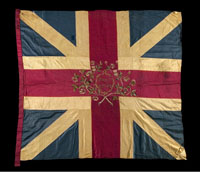Thomas Hutchinson (1711-1780)

Thomas Hutchinson was the last royal governor of Massachusetts Bay, a prominent loyalist, and a noted historian, both of his colony and his times. A native Bostonian, born September 9, 1711 to a wealthy merchant family, Hutchinson was, like many of his future political opponents, educated at Harvard University. In 1737 he was elected to the Massachusetts assembly, of which he was Speaker from 1746 to 1748. His support for an unpopular measure to redeem the colony's depreciated paper currency led to his defeat for re-election in 1749. He was then appointed to the Governor's Council and served as a delegate to the Albany Congress of 1754, where he joined Benjamin Franklin in drawing up a plan of American union. Hutchinson was made lieutenant governor of the province in 1758 and chief justice in 1760, offices he held simultaneously, much to the chagrin of Boston radicals such as James Otis (who believed he had been promised the latter post).
Hutchinson's popularity soured further in his support for writs of assistance, pitting himself against Otis again. He opposed the Stamp Act of 1765 but was obliged to enforce it, which resulted in a mob sacking his house, burning most of his furniture, and destroying a large collection of manuscripts he had compiled for a history of the colony (he was recompensed £2500 for his losses but no one was charged with any crime). Fortunately, one volume of his "History of the Province of Massachuset's Bay" had been published in 1764 and enough of the manuscript of the second volume was saved to publish the second volume in 1767.
In 1769, Governor Francis Bernard sailed for England, leaving Hutchinson in charge of the province at the height of popular disaffection in Boston in reaction to the passage of the Townshend Acts of 1768. After the Boston "Massacre" of March 5, 1770, he agreed to Samuel Adams' demand that all British troops be removed from the town to Castle William, in Boston Harbor. In 1771 he was chosen to succeed Bernard as royal governor, an offer he first declined but then accepted. Hutchinson then engaged in a series of heated disputes with Samuel Adams and others over whether the salaries of crown officers should be exempt from taxation and the fact that his own salary would no longer be subject to the assembly's approval, but instead paid directly by the crown.
Hutchinson's unpopularity reached a crisis point in 1773. In January, he informed the Boston Committee of Correspondence that "I know of no line that can be drawn between the supreme authority of Parliament and the total independence of the colonies"-a statement that crystallized for many Bostonians the choice facing them. Things got much worse for Hutchinson in June when Benjamin Franklin and Thomas Cushing, Speaker of the Massachusetts assembly, published confidential letters that he and other provincial officials had written to a correspondent in London. His expressed his low opinion of the "ignorant" radicals and stated that he favored "further restraint of liberty" in Massachusetts Bay "than the connexion with the parent state should be broken." The letters enflamed colonial opinion against Hutchinson and led the assembly to petition the ministry for his removal (their publication also destroyed Franklin's reputation in London as a rank breach of honor). Hutchinson agreed that the time had come for him to go and he applied for a leave of absence not long after the letters were printed. He was still in Boston on December 16, 1773, when he attempted to enforce the Tea Act if 1773 by forcing the landing of a consignment of tea that belonged, in part, to his sons, resulting in the Boston Tea Party. Hutchinson finally left the colony for England in June 1774, where he took the side of his fellow colonials by lobbying in vain against the Coercive Acts that closed Boston's port and suspended the Massachusetts constitution. He was succeeded as governor by Major General Thomas Gage.
Hutchinson died in London on June 3, 1780. The final volume of his well-regarded colonial history, which covered the central period of his political life, from 1749 to 1774, was published in 1828.



